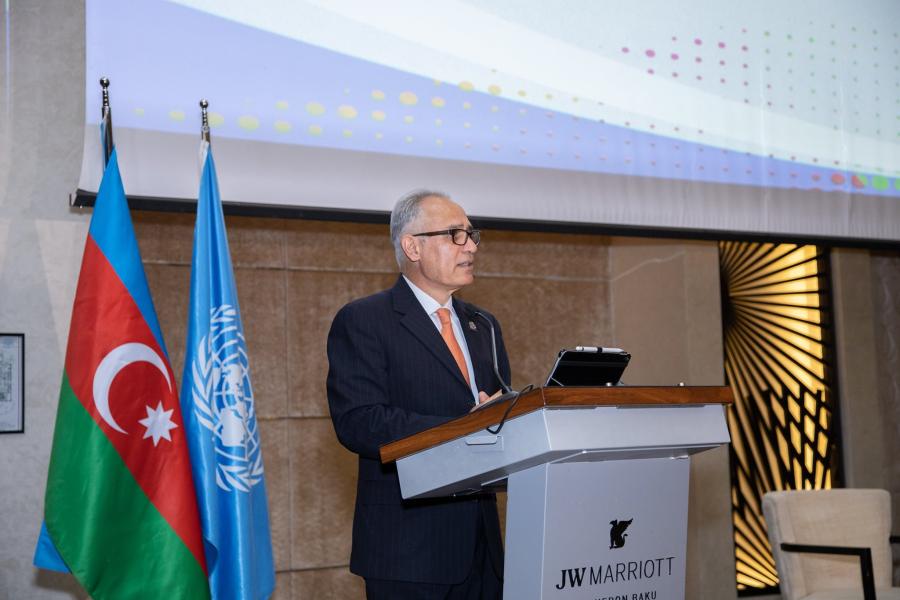UN, Azerbaijan discuss new cooperation framework for 2021-2025
16 January 2020
- A two-day workshop to shape the new cooperation framework between the United Nations (UN) and Azerbaijan has started today. The event brought together over 150 senior government officials, representatives of the UN agencies, civil society, private sector, youth organisations, academia and the media.

Organized by the UN Office in Azerbaijan and supported by the National Coordination Council for Sustainable Development (NCCSD), the workshop aims to identify the strategic priorities for the UN-Azerbaijan Sustainable Development Cooperation Framework (UNSDCF) covering the 2021-2025 period.
Mr Ali Ahmadov, Deputy Prime Minister of Azerbaijan and the NCCSD chair; Mr Ghulam M. Isaczai, UN Resident Coordinator in Azerbaijan; Mr Mikayil Jabbarov, Minister of Economy; Mr Sahil Babayev, Minister of Labour and Social Protection of Population; and other high-level officials spoke at the event.
The participants will also discuss Azerbaijan’s long-term vision to achieve the Sustainable Development Goals (SDGs) by 2030 and the UN’s contributions to this process. Moreover, they will exchange views on Azerbaijan’s main challenges in the implementation of the 2030 Agenda and ways to address them.
The UNSDCF is a five-year programming cycle that will serve as a guiding document for the work of the UN System in Azerbaijan. It will take over from the UN-Azerbaijan Partnership Framework (UNAPF), which elapses in 2020.
The UNSDCF is organized around six guiding principles and rooted in four primary objectives. The six guiding principles are: leaving no one behind; human rights-based approach to development; gender equality and women’s empowerment; resilience; sustainability; and accountability. The four primary objectives focus on establishing a collective response; meaningful partnerships; tangible actions; and new tools to better meet the needs and realities on the ground.

















